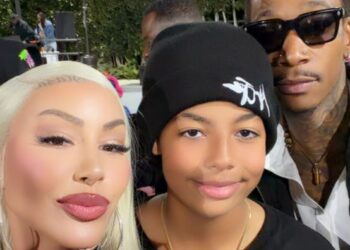Sesame Workshop, the educational nonprofit organization behind Sesame Street, has released some important new research. The new study shows how U.S. children perceive racism.

The study, entitled, Coming Together: Family Reflections on Racism, shared exclusively with Time Magazine, concluded that 86% of the participants responded that they believe that people are treated unfairly because of race. Additionally, nearly half of the respondents commented that they have personally experienced discrimination of some kind and many also said that they have personally witnessed unfair treatment.
“Children understand the concept of race and identity much earlier than we as parents think they do,” Tanya Haider, Sesame Workshop’s Chief Strategy Officer and EVP of Research and Ventures said to Time in an interview. “They understand differences, they understand color. Children are enormously intuitive and perceptive, and they also pick up that people react differently to those differences.”
According to Time, the study was commissioned last summer by Sesame Workshop to gauge how children perceived and were affected by the national reckoning with structural racism following the murder of George Floyd.
https://www.instagram.com/p/COg0hloBCPd/
One hundred and forty seven families across 35 states, who had children between the ages of 6 to 11-years-old, participated in the survey. The children of these families were asked general open-ended questions about their hopes, fears, and the world around them to gain data insight which was collected in the form of drawings, writing, photos, or video. The questions did not mention race or the protests in order to gain insight as to how these issues played an importance for the children. Afterwards, both parents and children answered explicit direct questions regarding race and racism.

The study was conducted in parts. The first took place in June 2020 and the second in January 2021. Researchers wanted to measure if their participants’ views changed at all. Data showed that in the second part of the study, parents reported that they felt more comfortable talking about race with their children. They also believed that their kids had a deeper understanding of racism than in the first part of the study.
A few aspects of the research, like the higher number of children who stated that people were treated unfairly based on race, surprised Haider. However, she also sees the results as a positive in the sense that it shows families are actually dialoguing about race and discrimination.
“Clearly, something had shifted and it was a shift for the better. Better not just in terms of children’s awareness, but also for our collective futures.”
To read more about this fascinatingly important research study or to download the complete report, click here.







